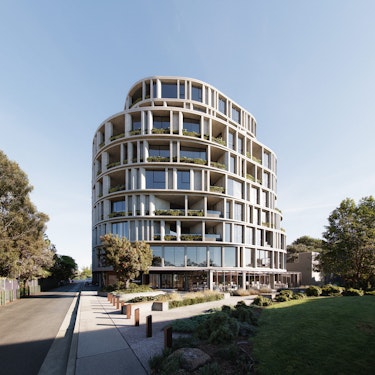Engaging buyers in the real estate market is increasingly becoming a blend of art and science, especially in the digital age where content marketing plays a pivotal role. The essence of content marketing in real estate is to create and distribute valuable, relevant, and consistent content to attract and retain a clearly defined audience — ultimately, to drive profitable customer action. This essay explores the strategic applications of content marketing in the real estate industry and concludes with insights on how to leverage these strategies effectively.
In the competitive landscape of real estate, content marketing has emerged as a powerful tool to differentiate oneself from the competition. It goes beyond mere advertising to tell stories, provide valuable information, and engage with potential buyers on a deeper level. Real estate professionals can use content marketing to build trust with their audience, establish their brand as an authority in the industry, and guide potential buyers through the decision-making process. With the advent of digital platforms, the opportunities for real estate content marketing have expanded exponentially, offering a variety of channels to reach potential buyers where they spend a significant amount of their time.

Expanding on the list of applications and increasing the descriptions within the context of real estate content marketing offers a more comprehensive understanding of how to effectively engage buyers and build a strong brand presence. Here are more detailed strategies:
1. Blogging with a Twist: Beyond basic market insights, real estate blogs can offer deep dives into local culture, lifestyle, and community events. Featuring guest posts from local business owners, interviews with residents, and spotlighting local attractions can create a more engaging and community-oriented blog. This not only improves SEO but also builds a sense of community and belonging among potential buyers.
2. Advanced Social Media Strategies: Utilize the full range of social media functionalities, such as Instagram Stories for behind-the-scenes looks at properties, Pinterest boards for home decor inspiration, and LinkedIn articles for market analysis and investment advice. Employing targeted ads based on user behavior and preferences can also increase the visibility of listings to the most interested and relevant audiences.
3. Personalized Email Campaigns: Segment your email list based on the recipients' interests, past interactions, and position in the buying journey. Tailor content accordingly, from nurturing leads with informative content to re-engaging past clients with updates on the market's state or new listings. Automation tools can help deliver the right message at the right time, making each recipient feel understood and valued.
4. Video Content Beyond Tours: Create series that follow the renovation projects, offer "day in the life" stories of different neighbourhoods, or explain complex real estate processes in simple terms. Utilizing drone footage to showcase properties and their surroundings from a unique perspective can also captivate potential buyers’ attention.

5. Interactive Webinars and Workshops: Increase the interactivity of webinars by incorporating polls, Q&A sessions, and live discussions to make the experience more engaging for participants. Offer exclusive resources, such as guides or checklists, to webinar attendees to add value and encourage participation.
6. Comprehensive SEO and Local SEO Efforts: Incorporate voice search optimization, given the rise in voice-activated searches, and ensure your content answers the types of questions potential buyers might ask their devices. Enhance local SEO strategies by getting involved in local events and activities, then creating content around these experiences to boost local relevance and visibility.
7. Strategic Influencer Collaborations: Identify influencers who not only have a significant following but also align with your brand's values and audience. Collaborating on content that provides genuine value—such as home styling tips, moving advice, or financial planning for first-time buyers — can lead to more meaningful engagement and trust.
8. Immersive Interactive Tools: Develop virtual reality tours that allow potential buyers to explore properties in a more immersive and interactive manner. Offer customization options within these tours, such as changing wall colors or furniture, to help buyers visualize themselves in the space. Interactive neighborhood maps that highlight local schools, parks, and amenities can also be invaluable for buyers considering different areas.
By deepening the engagement through these expanded strategies, real estate professionals can more effectively connect with their audience, providing them with a richer, more informative, and engaging experience. This approach not only serves to attract potential buyers but also fosters a sense of loyalty and trust that can pay dividends in both the short and long term.

Real estate content marketing is not just about selling properties; it's about building relationships, trust, and community. By providing valuable and relevant content, real estate professionals can attract more leads, nurture them through the buyer’s journey, and ultimately convert them into loyal customers. The key to successful real estate content marketing lies in understanding the target audience, leveraging the right mix of digital platforms, and consistently delivering quality content that resonates with potential buyers. It's a long-term strategy that requires patience, creativity, and adaptability, but when executed well, it can significantly enhance the visibility and reputation of a real estate brand. As the digital landscape evolves, so too must the strategies employed by real estate professionals to stay ahead in this dynamic market.
